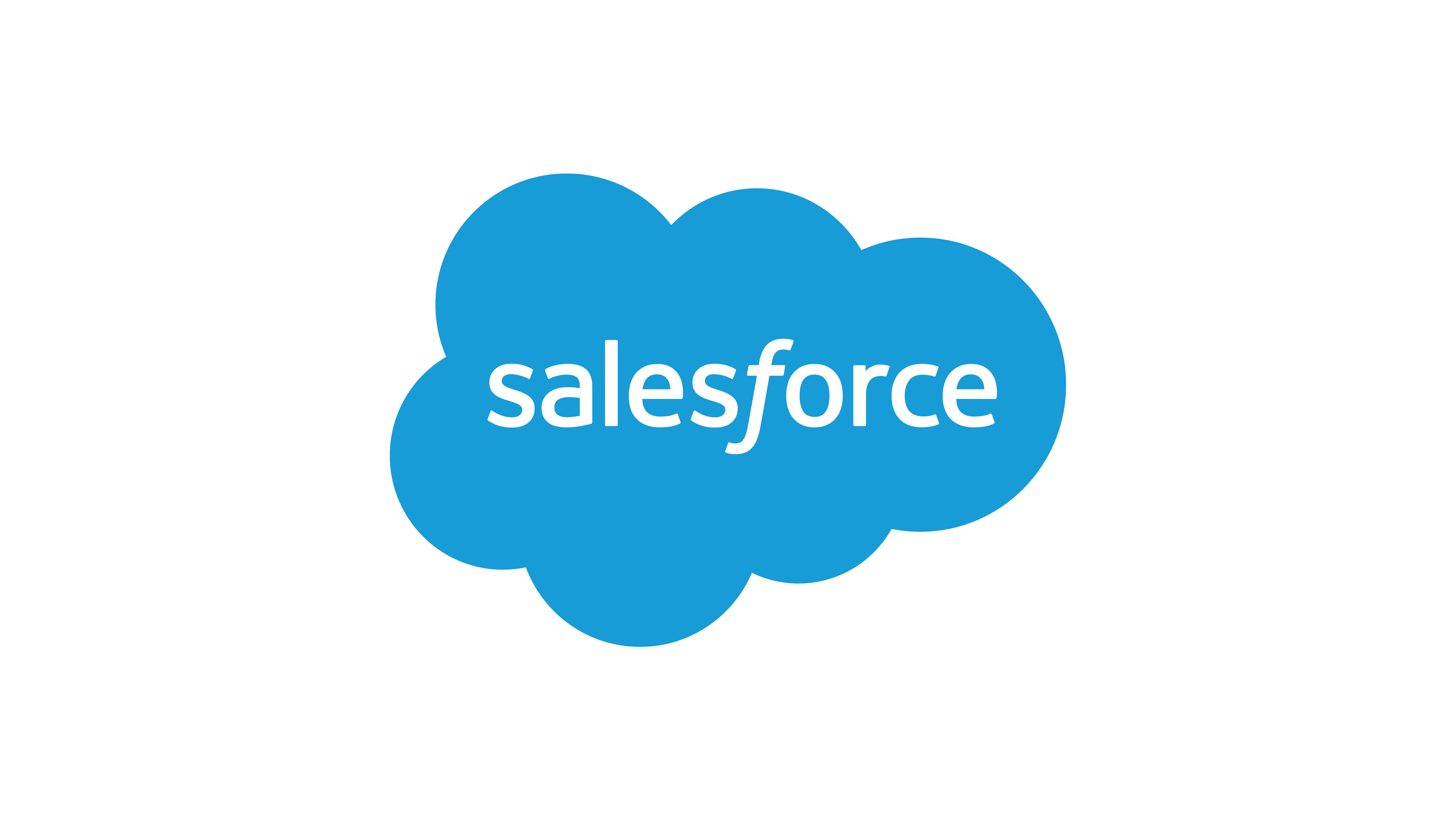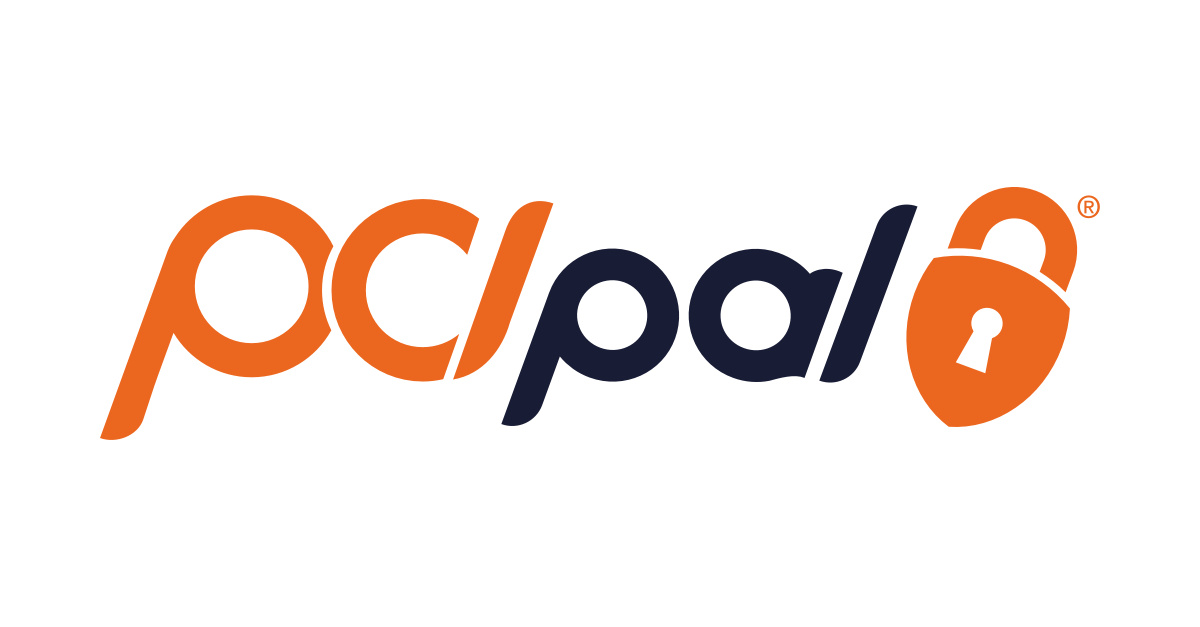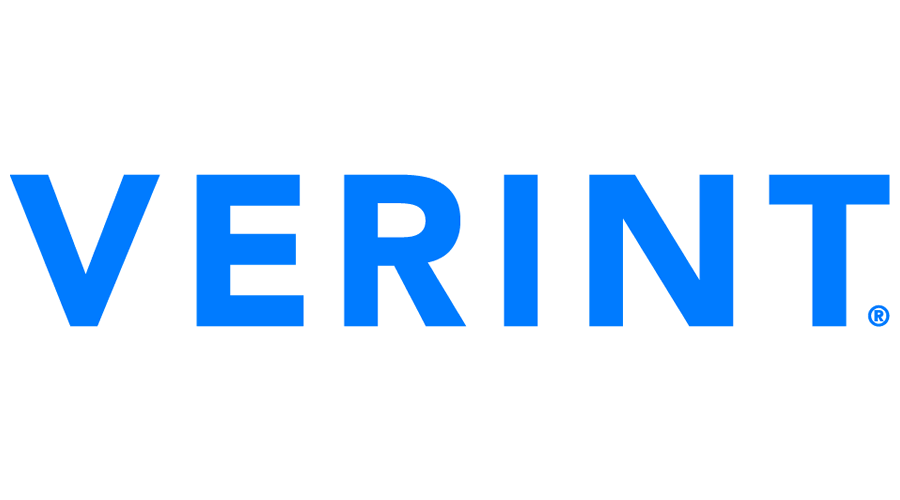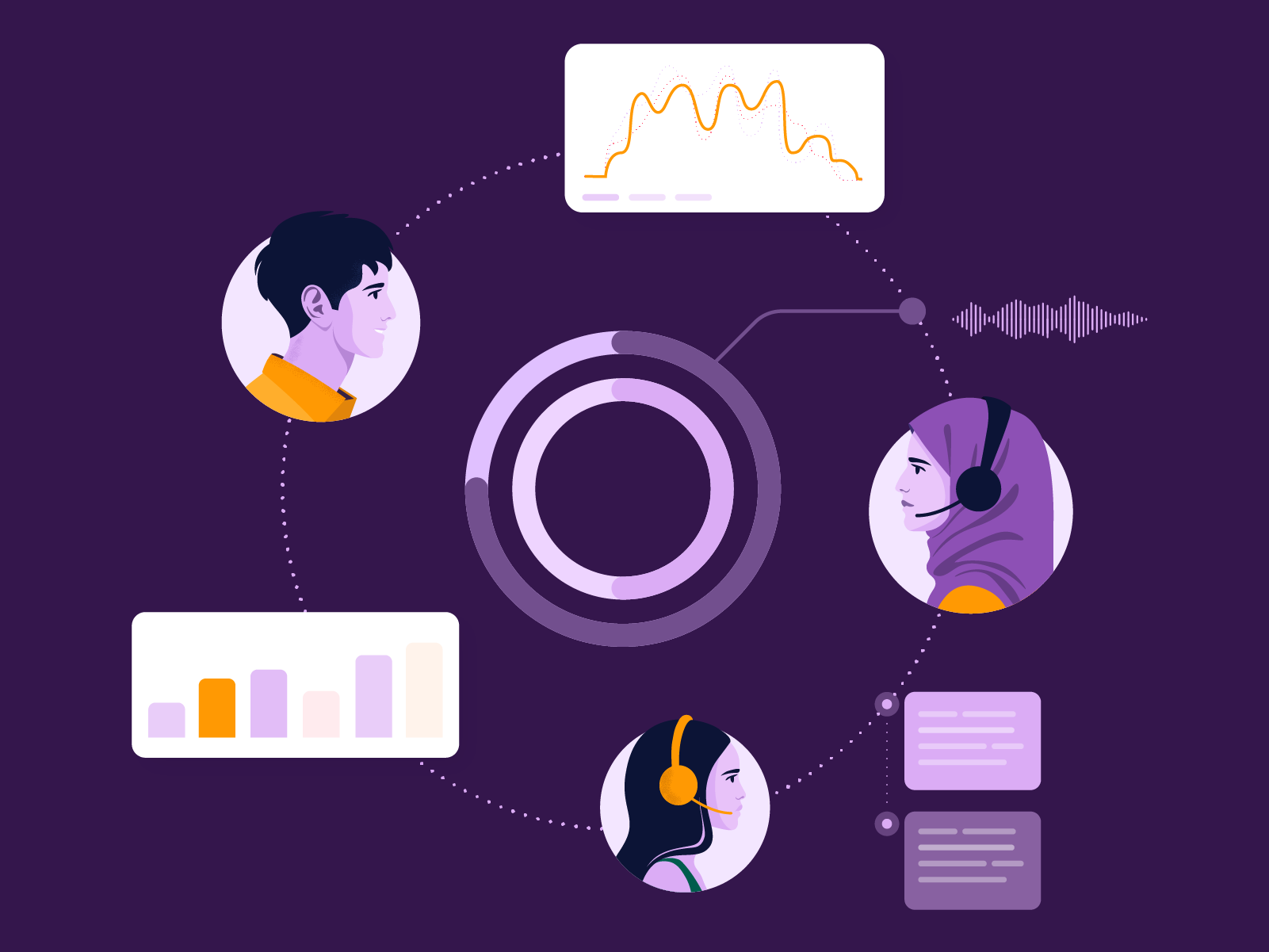Puzzel Kontaktcenter.
Möt dina kunder där de är och lös frågor snabbare. Vår Contact Centre-plattform ger dina agenter möjlighet att leverera förstklassig kundsupport i rätt kanal och lyfta varje samtal.
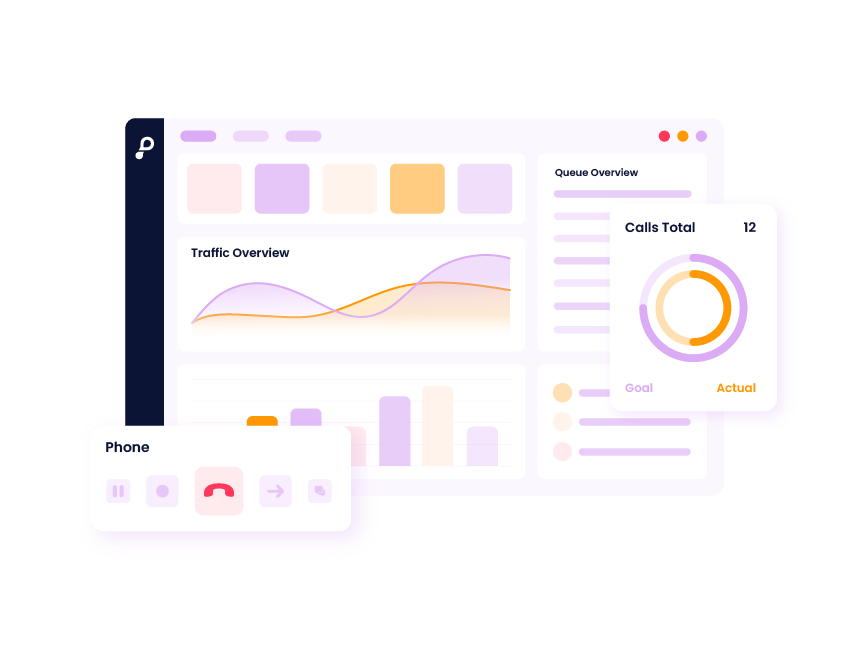
Betrodda av Europas ledare inom kundupplevelse.
Kontaktcenterplattformen för att
glädja dina kunder.

Optimering av kanaler
Möt dina kunder där de är.
Kundernas förväntningar är högre än någonsin. Vårt uppdrag är att se till att du har rätt verktyg för att överträffa dem. Med Puzzels Contact Centre-plattform kan du skapa konsekventa kundresor och möta dina kunder i den kanal som passar bäst för deras fråga - oavsett om det är e-post, webb, SMS, röst eller sociala medier. Med ett enda gränssnitt och AI-förbättrade verktyg har dina agenter dessutom allt de behöver för att leverera snabba, personliga svar.
Viktiga funktioner.






Frigör ditt teams potential med Puzzel kundupplevelse-plattformen.
Puzzel Contact Centre är en del av Puzzel CX-plattformen som kombinerar kontaktcenter som tjänst med automatiseringsfunktioner för självbetjäning. Detta hjälper dig att konsolidera alla dina kontaktcentertekniker i en enda plattform, så att du kan fokusera på det som är viktigast - att ge härliga kundupplevelser, oavsett kanal.
Se alla nyheter i vår blogg
Vanliga frågor och svar.
Puzzel Contact Centre Solution är en flexibel och skalbar molnbaserad kontaktcenterplattform som hjälper företag att hantera kundinteraktioner över flera kanaler, inklusive röst, e-post, chatt och sociala medier. Lösningen är utformad för att förbättra kundupplevelsen och öka handläggarnas produktivitet genom intelligent routing, automatisering av arbetsflöden och realtidsanalys.
En kontaktcenterlösning i molnet är en digital kundserviceplattform som gör det möjligt för företag att hantera kundinteraktioner i flera kanaler på ett effektivt sätt och förbättra kundservice och support. Kontaktcenter i molnet omfattar vanligtvis flera kanaler, t.ex. röst, e-post, SMS, video, chatt och sociala medier.
Lösningen förbättrar kundnöjdheten genom att säkerställa att kunderna snabbt dirigeras till rätt handläggare med hjälp av intelligent dirigering. Lösningen gör det också möjligt för kunderna att interagera via de kanaler de föredrar och utnyttjar analyser för att identifiera problem och trender i kundbeteendet.
Puzzel ökar produktiviteten genom automatiserings- och integrationsfunktioner som effektiviserar handläggarnas arbetsflöden. Viktiga funktioner inkluderar:
- Automatiserad uppgiftshantering för att prioritera förfrågningar.
- Enhetliga gränssnitt för handläggarna, vilket minskar tiden det tar att växla mellan olika applikationer.
- Integration med CRM-system för sömlös informationsåtkomst.
De viktigaste fördelarna är bland annat
- Flexibilitet: Lösningen är anpassningsbar för företag av olika storlekar och branscher.
- Skalbarhet: Kan enkelt skalas upp eller ner baserat på affärsbehov.
- Omnichannel-funktioner: Hanterar interaktioner över flera kanaler från en enhetlig plattform.
- Analys och rapportering: Ger insikter om data i realtid för att förbättra beslutsfattandet.
- Sömlösa integrationer: Integreras med populära affärsverktyg och CRM-system. .
Ja, jag vill förhöja min kundupplevelse
Puzzel Contact Centre är en del av Puzzel CX-plattformen som kombinerar kontaktcenter som tjänst med automatiseringsfunktioner för självbetjäning. Detta hjälper dig att konsolidera alla dina kontaktcentertekniker i en enda plattform, så att du kan fokusera på det som är viktigast - att ge härliga kundupplevelser, oavsett kanal




